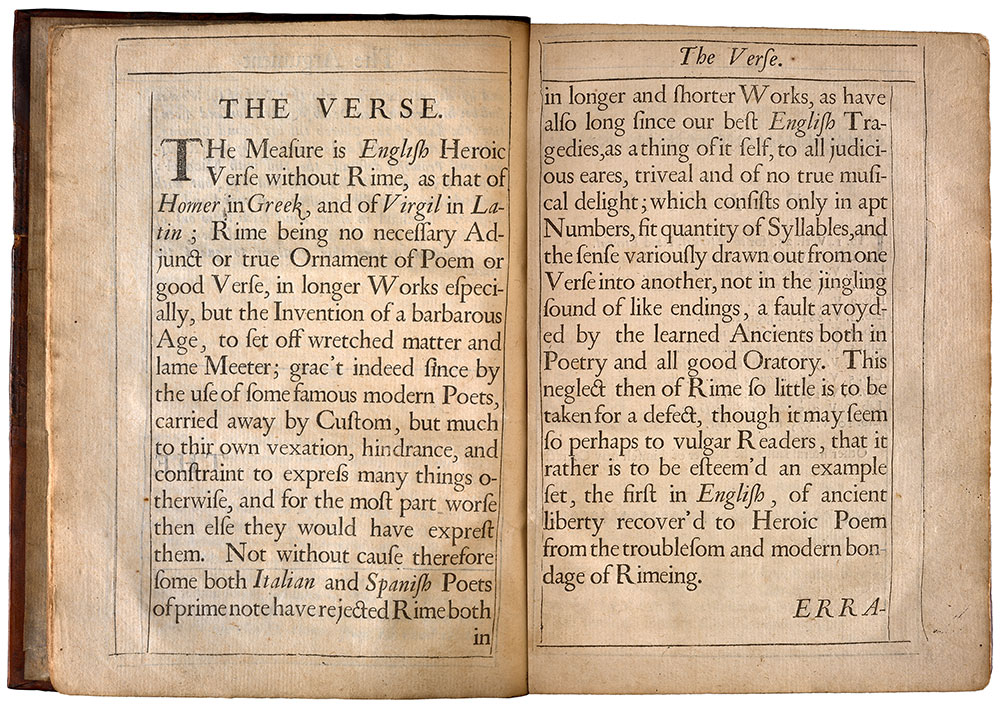1668 Edition

Paradise Lost. A Poem in Ten Books. The Author / John Milton.
London: Printed by S. Simmons, and to be sold by S. Thomsonat the Bishops-Head in Duck-lane, H. Mortlack at the WhiteHart in Westminster Hall, M. Walker under St. Dunstans Church in Fleet-street, and R. Boulter at the Turks-Head inBishopsgate street, 1668.
Gift of Dr. Karl Vogel, 1957
This 1668 reissue was the first to include Milton's synopsis of each book ("the Arguments" of Books 1–10), his defense of "the Verse," and a list of errata, adding sixteen pages of preliminary matter to the book. Simmons's note to the reader states that he had procured this explanation from Milton because readers of the poem had "stumbled" on first encountering it, asking "why the Poem Rimes not." Milton's strident defense of blank verse (unrhymed iambic pentameter) is printed in large type that fills two pages. His chosen meter, although no longer fashionable by 1667, was the dominant mode of Shakespeare's plays and is the closest to the natural rhythms of English speech. Samuel Johnson later commented sarcastically that, "finding blank verse easier than rhyme, [Milton] was desirous of persuading himself that it is better."